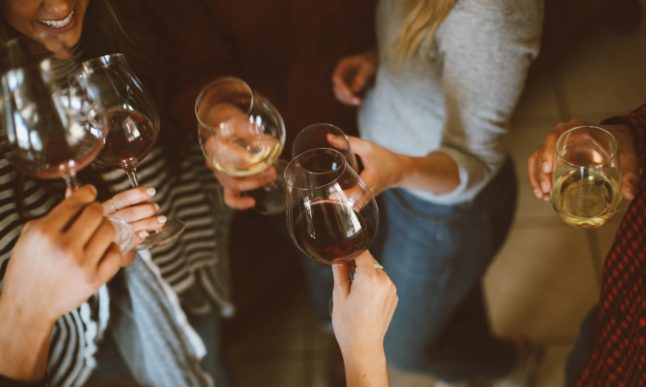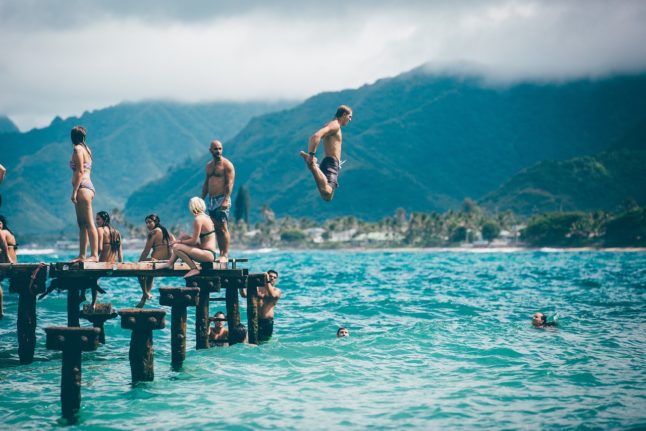Being a non-drinker in Switzerland is the quickest way to become a social outcast.
This is not an exaggeration.
A wine-producing country (although certainly not on the same scale as neighbours France, Italy, and Germany), Switzerland’s 2,500 vintners produce 100 million litres of wine per year.
And almost none of it is exported, with all the production intended for domestic use.
READ ALSO: How to drink wine like a Swiss
Not only is wine abundant in Switzerland, but drinking can fell like it is obligatory for everyone over 16 — the legal wine consumption age.
By ‘obligatory’ we don’t mean there is a legislation to this effect, but it is one of those infamous ‘unwritten rules’ that are prevalent in the country.
If you hope to make it in Switzerland, you absolutely must drink wine at social gatherings — preferably Swiss wine — and never be caught drinking something like Coca-Cola or sparkling water instead.
That would send a signal that you are not sufficiently integrated into Swiss way of life and that you are, in all probability, a bore.
‘Tis the season
If you belong to the minority known as non-drinkers, you’d better develop a thick skin about it, because you are likely to get weird looks and possible questions like “why don’t you drink?”
This could be especially bothersome now, as the phenomenon known as “office Christmas party” is in full swing.
A common denominator at these events is alcohol, and plenty of it.
“It starts with a glass of wine handed to you because the boss is making a toast. You can hardly refuse it,” Philip Bruggmann, a doctor of internal medicine at the Arud Center, an institute specialising in addictions, said in an interview with Swiss media.
People who have already had problems with alcohol in the past and who want to abstain from drinking will find it difficult to do so during the Christmas season, he said.
Those who can’t drink for health or religious reasons, or just prefer to stick to non-alcoholic beverages, will have a hard time doing so as well, given the social pressure at a close-knit company event.
Cultural component
As mentioned above, nobody will pressure you to eat chocolate or cheese, but when it comes to drinking, all boundaries of privacy and respect for other people’s choices are off.
At the root of this is almost a sacred place that alcohol, and especially wine, has in Switzerland.
“It fulfils a social and societal function,” according to sociologist Katja Rost, who added that many people in Switzerland believe non-drinkers are killjoys.
It may not matter so much to non-drinkers who find themselves among people they don’t know — for instance, in a bar — but the pressure to conform is much bigger at an office gathering, where co-workers and management are present.
And to make matters even worse, abstainers must often answer personal questions about their reasons for not drinking.
The best way to handle this situation (though it may not necessarily appease the busybodies and get them off your back), is not to fall into the trap of explaining yourself.
“A ‘no’ is a legitimate statement and does not require any further justification,” said Monique Portner-Helfer, spokesperson for Addiction Suisse.



 Please whitelist us to continue reading.
Please whitelist us to continue reading.
Member comments